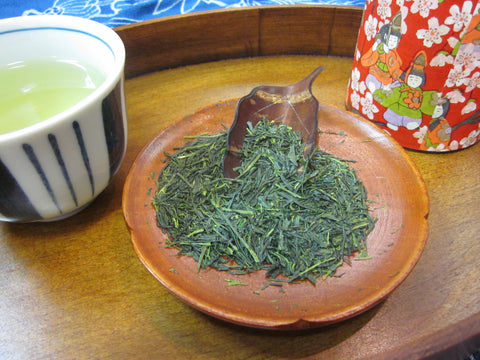
I picked up the phone at TeaSource one afternoon when everyone else was busy and started to talk to a customer who had been on the website, but had some questions.
Customer:
“My son is going out with a girl from Japan, and they’re serious (occasionally at TeaSource we learn more about our customers’ lives than we expect to). So I’ve decided I need to learn about Japan. And it was obvious from the beginning that tea is important in Japan, and I’m already a tea person, so Japanese tea seemed a good place to start learning more about.
I went on your website, and there were a lot of teas, but I didn’t even know to know how to begin.
So that’s my question; I want to dive into Japanese teas, how do I do that?”
Me:
“Thank God you called. When the phone rang I was afraid it was my bank or my credit card company. I LOVE these kinds of questions. This is much more fun than working on the pile of paper on my desk.
What do you know about Japanese tea?”
Customer:
“It’s green, it seems you have to wear a kimono, and you have to move slowly when drinking it.”
Me:
"Welllll, I’d say one of those three points is accurate. And your other two points may stem from watching Karate Kid 2, too often. Most Japanese teas are green tea, that’s true. Wearing a kimono and moving slowly and gracefully seem to be referring to the Japanese Tea Ceremony."

(Side note: the Karate Kid 2, has the best Japanese Tea Ceremony I’ve ever seen in a film)
Me:
“I would suggest we forget about the Japanese Tea Ceremony for now. How about we focus on what teas people actually living in Japan drink and encounter on a regular basis?”
Customer:
"Perfect."
Me:
"Great, then the first tea has to be Sencha, it is the most popular tea in Japan. Sencha's are known for having some sweetness, a taste of the sea (sea-weedy, but in a good way), a very fresh-green-bright flavor, and some umami (savory) texture. I would suggest our Asanoka #80, it’s a pretty exceptional tea.
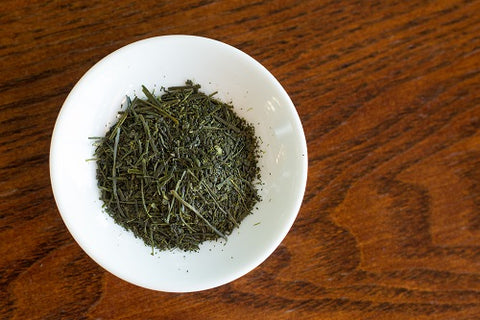
Sencha Homare
Next, I would suggest our Karigane. It is a less well-known Japanese tea, but might be the best to start with. It is a very accessible green tea. They make this tea with bright fresh green tea leaves, but deliberately include some of the stalk of the leaves. This gives the tea an exceptionally mellow, sweet, smooth, non-astringent, flavor. This is a great tea for people who think they don’t like green tea.
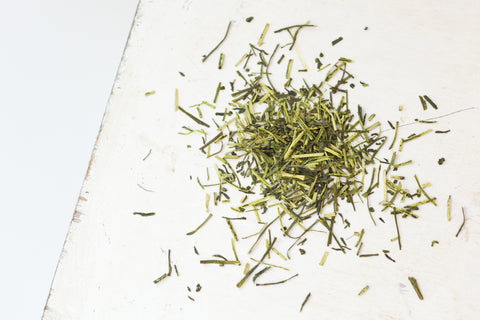
Karigane
Then you need to try at least one of the higher-end and INTENSE Japanese green teas, and I would recommend our Gyokuro. This tea has incredible deep, dark green leaves that produce a taste that is sweet, somewhat vegetal/fresh (in a good way), with a very intense almost viscous-brothy body. These leaves are shade-grown, which leads to the intensity of the color and the cup. This tea is also known as Jade Dew.
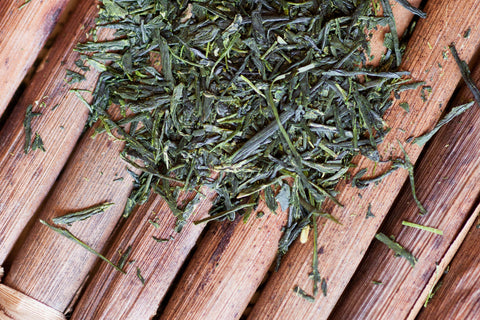
Gyokuro
Now for something completely different. Genmaicha. They drink tons of this tea in Japan, most of it coming from refrigerated soft-drink machines; seemingly on every corner of Japan. This is a blend of a basic Japanese green tea, with roasted brown rice kernels, and some of these kernels pop during the roasting process (some people call this “popcorn tea”). So in the cup you can taste the green tea and the toastiness of the rice. It’s a wonderful combination of flavors and gives a little more body to this traditional Japanese green tea.
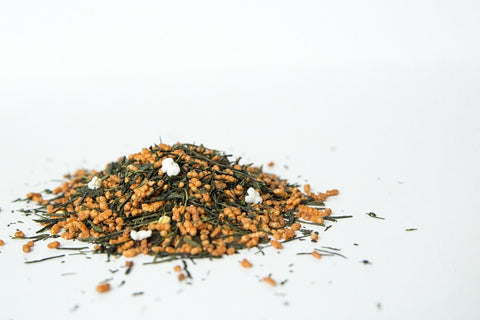
Genmaicha
Lastly, for those people who those say green tea is just too darn light, thin, mild etc. Houjicha. It has the most body and dark color of any Japanese green tea. When you brew it up it will look like a medium-bodied black tea. They use a nice grade of a basic Japanese green tea. Then they toast the leaves, until they have a nice nutty-brown look and aroma to them. And that is how this tea cups up; toasty, medium to full-bodied, some mellow-sweetness and it has less caffeine than most green teas."
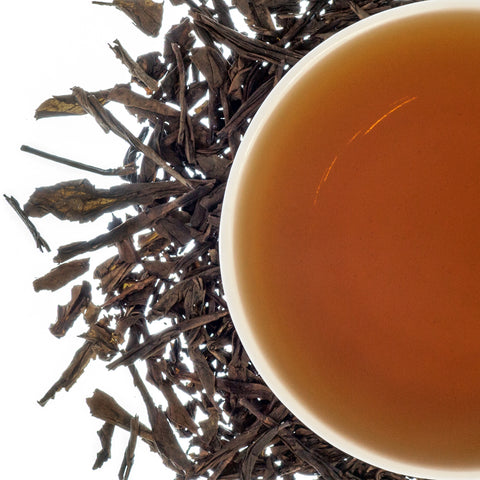
Houjicha
Customer:
"That’s great, thanks. It sounds like such a range of tastes from one country."
Me:
"Boy, what a fun tea journey you are going on. And you’ll probably impress the heck out of your son’s sweetheart. And I hope that all works out OK. If not, you’ve always got the tea."
Bill Waddington, owner
TeaSource
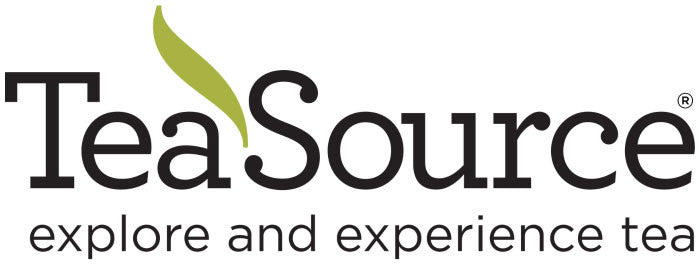
Comments
Well, I’m certainly going to make a note of these teas!